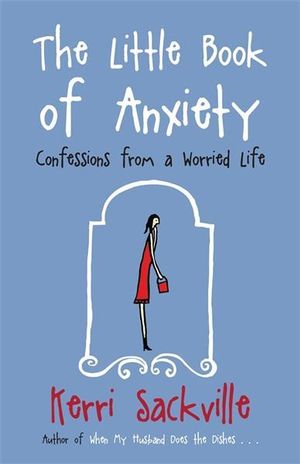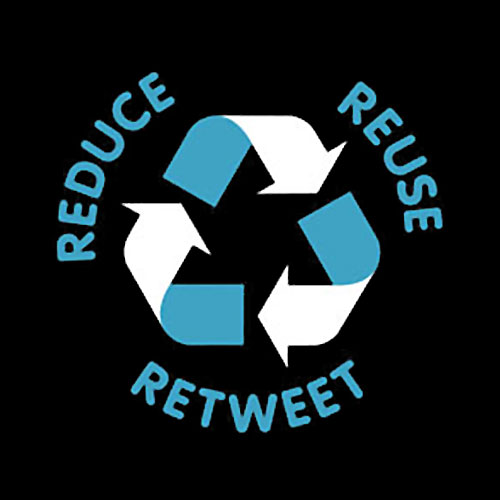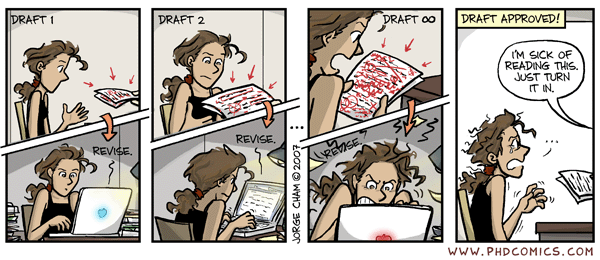Posted by Peter Tennant
UK Prime Minister David Cameron once quipped, 'too many tweets… make a twit'. OK, so he didn't actually say twit, he said something far ruder. But you get the idea: man says rude things about Twitter, outcry follows. Trouble is, he was only repeating something that many people already think about the world's most famous 'micro-blogging' service; that it's full of the self-absorbed wittering on about what they'd had for breakfast. So a bit like Facebook, only more celebs and less baby photos.
Which is why it was so surprising when David Cameron suddenly joined Twitter last month. No doubt, he had expected the ensuing torrent of abuse. His
opening tweet promising not to make 'too many tweets' was almost certainly an attempt to placate the predictable cries of '
U-turn'. But I guess he felt that the benefits of joining now outweighed the risks of looking like a twit.
.jpg) |
| Twitter evangelists: Ever feel like slapping them with a blue rubber chicken? |
For a politician, the argument seems pretty clear.
Over 10 million UK residents now use Twitter. Worldwide that figure has been estimated as high as
half a billion. If, by sending out a few brief messages, a politician can communicate with just a fraction of that number, then the proceeds are palpable. Twitter provides a person, or an organisation, with a direct line to the public. Why waste your time being misquoted by journalists when you can mis-tweet all by yourself?
I (
@Peter_Tennant) joined Twitter back in Summer 2011 to explore how it could be used for 'work'. And when I say work, remember I'm not something useful like a public health practitioner wanting to find new ways to get people to take their flu jab;
I'm an Epidemiologist who spends most of his day staring blankly at a computer screen. So my interests were purely in Twitter as a networking tool, information feed, and broadcasting service.
I started out pretty cynical, spending the first few weeks mumbling about how rubbish it was. But as my followers increased, and I got myself involved in more and more conversations, my view began to change. Until, without noticing, I'd converted into one of those boring Twitter evangelists. The sort of person who I'd ordinarily want to slap across the face with an oversized
rubber chicken (painted blue, of course, to resemble the twitter logo).
But the annoying truth is, Twitter can be useful. Almost everyone I follow is interested in some aspect of my professional interests. Which means my 'feed' is full of news about higher education, life as a PhD student, or articles about obesity, diabetes and/or pregnancy. I've lost count of the number of relevant articles I've discovered purely through Twitter, and there's not a tweet from Steven Fry in sight. On the flip side, this means that my followers will hopefully be interested when I tweet the results from my latest publication. At least, that's what I like to believe…
But neither of these benefits really compare to Twitter's strength as a networking tool. Not only have I made some new friends in my own building, but I've had several conversations with people at conferences purely on the back of Twitter. In fact, it was probably only when I went to
my first academic conference as a Twitter user that I was truly sold.
But it's not all positive. First, there's the spam, which consists either of messages from friendly users who've clicked on a phishing link or, worse, from '
spam-bots' (the giveaway being the scantily clad profile picture). They're easy to deal with, but they’re also rather boring.
My main challenge, however, has been the scope for misinterpretation. Like when I tweeted about a colleague having a giant red nose and for some reason they were offended* It can be difficult getting the balance right on Twitter. If you don't have a personality, no-one will follow you, but if that personality is too open or opinionated, get ready for trouble. After one memorable incident, I had the words 'libel' and 'defamation' thrown in my direction. And that was despite my strict adherence to Peter's Rule:
"Never say anything on Twitter that you wouldn't be willing to say in person, out loud, to a room of your colleagues."
I have since realised that the perceived prominence and permanence of Twitter make even this rule a bit weak. Even when I say things completely consistent with my character, people have still accused me of overstepping the mark. Until I can work out a solution, I've decided to retreat to making
bland statements and asking
obscure statistical questions. So if you're on Twitter, I really wouldn't bother following me…
And I haven't even touched on the really big issues about power and privacy. Twitter has been simultaneously praised and damned for its roles in the
Egyptian Revolution and the
London riots respectively.
Several people have been arrested following ill-conceived or distasteful tweets. And what about Twitter's unchallenged authority to block someone's account at will (a power that took on a darker twist when one
journalist was blocked for attacking one of Twitter Inc's commercial partners)? Does any of this effect Twitter as a research tool? I don't think so. But I'm willing to change my mind if I ever get arrested for tweeting something libellous about
Bayes.
*May not have happened. Thank goodness.






.jpg)














